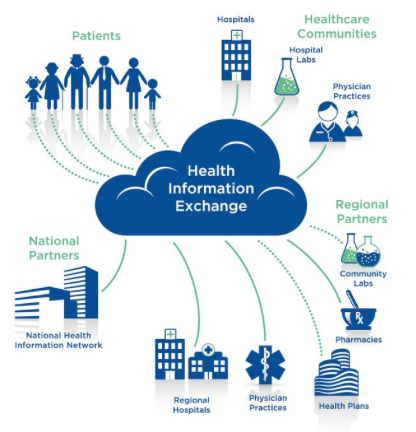Health Information Exchange
ADHRI seeks to enable health information exchange through interoperable networks and frameworks across systems and jurisdictions.

Health Information Exchange (HIE) is the electronic sharing of healthcare-related information among different organizations and systems within the healthcare ecosystem. The primary goal of HIE is to facilitate the secure and interoperable exchange of patient health information, such as medical records, test results, treatment plans, and other clinical data, to support patient care, improve healthcare quality, and enhance care coordination. Here are key aspects of Health Information Exchange:
Interoperability: HIE systems ensure that different healthcare entities, such as hospitals, clinics, laboratories, pharmacies, and physicians' offices, can share and access patient information regardless of the electronic health record (EHR) systems they use. Interoperability standards, such as HL7 (Health Level Seven) and FHIR (Fast Healthcare Interoperability Resources), facilitate this seamless data exchange.
Patient-Centered Care: HIE promotes patient-centered care by giving healthcare providers access to a comprehensive view of a patient's medical history and treatment across various care settings. This allows for more informed clinical decisions and personalized treatment plans.
Care Coordination: HIE enhances care coordination by enabling healthcare teams to collaborate more effectively. Specialists, primary care physicians, nurses, and other healthcare professionals can access relevant patient data to provide timely and appropriate care.
Reduced Duplicative Testing: With access to shared patient data, healthcare providers can avoid redundant diagnostic tests and procedures, leading to cost savings and a reduction in potential patient discomfort.
Emergency Situations: In emergency situations, such as when a patient is admitted to the emergency department, HIE systems can provide critical medical information quickly, potentially saving lives. This includes information about allergies, medications, and underlying medical conditions.
Public Health Reporting: HIE supports public health initiatives by facilitating the reporting of disease outbreaks, monitoring health trends, and enabling timely responses to public health crises.
Improved Efficiency: Healthcare organizations can operate more efficiently with HIE, as it reduces the need for time-consuming paperwork, phone calls, and faxing of medical records. This, in turn, can lead to cost savings.
Data Security and Privacy: Protecting patient data is a top priority in HIE. Robust security measures, encryption, access controls, and compliance with healthcare privacy regulations (e.g., HIPAA in the United States) are essential components of HIE systems.
Consent Management: Patients often have control over who can access their health information through HIE systems. Consent management tools allow patients to specify their preferences regarding data sharing.
Data Governance: Effective data governance practices ensure that HIE systems maintain data accuracy, integrity, and reliability. This involves data validation, data stewardship, and data quality management.
Health Information Exchange has the potential to significantly improve healthcare quality, patient safety, and overall healthcare outcomes by providing timely and accurate access to patient information. However, challenges such as data standardization, privacy concerns, and financial sustainability need to be addressed for HIE initiatives to be successful on a broader scale.
Health information exchange (HIE) entails the electronic mobilization of health data across organizations and systems. As leaders in digital health innovation, the African Digital Health Research Institute (ADHRI) recognizes the value of flexible, interoperable HIE frameworks.
ADHRI aims to develop regional and national approaches to enable appropriate health information sharing between healthcare providers. Effective HIE would facilitate continuity of care as patients transition between different facilities.
Key strategies pursued by ADHRI include:
- Creating master patient indexes to link records across systems.
- Implementing shared data standards, terminologies, and ontologies.
- Developing record locator services and query systems.
- Establishing governance frameworks and access policies.
- Leveraging blockchain mechanisms to securely share selected health data.
Through strategic investment in HIE, ADHRI seeks to make digital health data more accessible and useful across the continent - supporting quality care, public health, and research.
